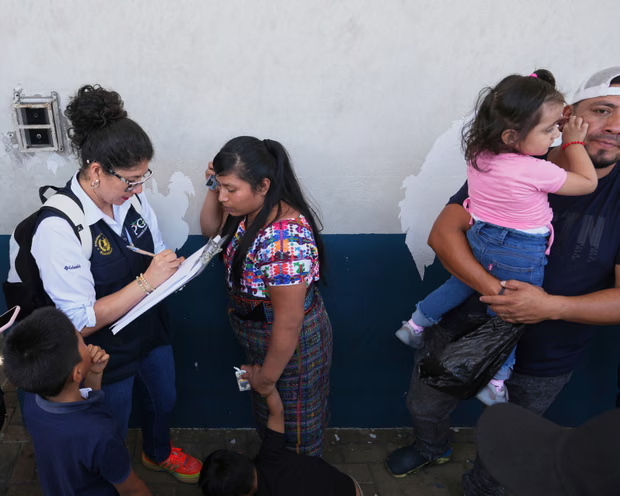The Trump administration plans to offer $2,500 to immigrant children in U.S. custody if they voluntarily leave the country, according to a recently obtained government memo. The program targets unaccompanied minors aged 14 and older who have expressed interest in returning to their home countries. Children from Mexico are excluded from the plan.
The memo, issued by the Department of Health and Human Services (HHS) to legal service providers for unaccompanied minors, confirms that the government will provide a one-time resettlement stipend of $2,500 to eligible children. The Department of Homeland Security (DHS) later confirmed the memo and its details, saying the payment would be issued only after a judge approves the child’s voluntary departure and the child reaches their home country.
Experts and advocates have called the policy unprecedented. While voluntary departure for minors has existed for years, it traditionally requires attorney consultation and court approval. Offering financial incentives to minors to encourage self-deportation is a new approach, raising legal and ethical concerns.
Critics argue the plan could exploit vulnerable children. Shaina Aber, executive director of the Acacia Center for Justice, said the policy contradicts federal laws designed to protect children from trafficking risks. She expressed concern that minors forced or persuaded to leave could waive rights under the Trafficking Victims Protection Reauthorization Act.
Immigration lawyers also warned of potential dangers. Marion “Mickey” Donovan-Kaloust of Immigrant Defenders Law Center said the $2,500 offer pressures minors to give up legal claims and return to unsafe conditions. Murad Awawdeh, president of the New York Immigration Coalition, described the policy as chaotic and potentially harmful to families and communities.
Unaccompanied children entering the U.S. are placed in federal shelters managed by the Office of Refugee Resettlement (ORR) under HHS. These children stay in custody until they can be safely reunited with family members or placed with vetted foster families. Federal law outlines these procedures to protect minors during their stay.
The Trump administration has previously attempted to remove unaccompanied minors from the country. In August, officials tried to deport dozens of Guatemalan children who had pending immigration cases. Early morning deportation attempts were halted by a judge’s temporary injunction.
Members of Congress, led by Representative Delia Ramirez, recently expressed concern about the treatment of immigrant children. They wrote to DHS opposing efforts to return unaccompanied minors to their countries, warning that the new policy could deny children due process and increase trafficking risks. The memo offering $2,500 was issued just days after this letter.
Legal experts question whether minors can legally consent to such decisions. Dina Francesca Haynes of Yale University said children cannot enter contracts on their own, making the program legally and ethically questionable. She also warned the policy could further separate families, especially since the administration recently imposed stricter requirements on who can take custody of minors, including U.S. identification, proof of income, and DNA verification.
Advocates argue the policy may coerce children to protect family members from deportation. Haynes described the measure as “astonishing” and coercive, targeting children who are already traumatized.
DHS described the initiative as providing children with a voluntary choice about their future, noting that payment would follow legal approval and arrival in the home country. The program initially targets 17-year-olds, though the memo includes children as young as 14.
The $2,500 stipend echoes a previous Trump policy offering $1,000 to adults who voluntarily left the U.S. using a government app. Critics note uncertainty about the program’s effectiveness and whether promised payments are actually delivered.
Advocates also fear that minors are being used to locate and deport their families. Reports show the government has sometimes misclassified children as unaccompanied to separate them from parents, particularly when families have challenged deportation orders or sought asylum.
The policy has sparked widespread concern that financial incentives could pressure vulnerable children into leaving the U.S. without fair legal review, leaving them at risk of harm, trafficking, or family separation.







